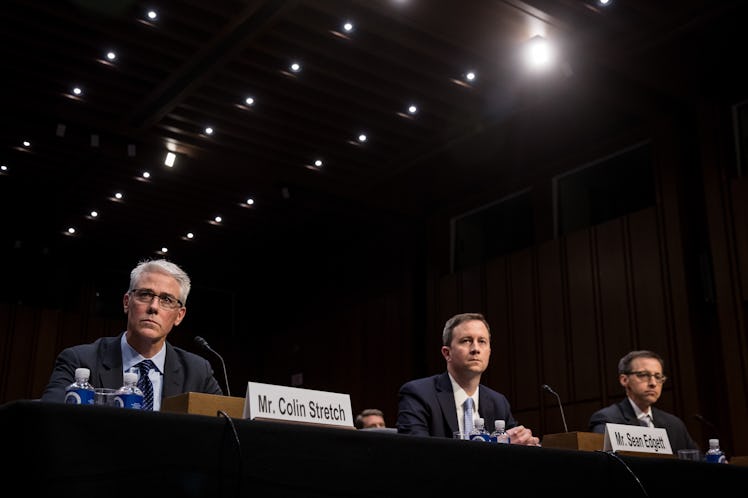
Here Are The Facebook Ads Russia Used To Get In Your Head During The Election
On Wednesday, Nov. 1, lawmakers released photos of Russia's election Facebook ads to the House Intelligence Committee. The ads were reportedly bought as part of an effort to influence the 2016 election in President Donald Trump's favor. The House committee provided the biggest platform to date to sample the Russian-bought ads, which show efforts to divide the American public on controversial issues such as religion, police brutality, gun violence, and immigration.
These ads, which have been made public, revealed links to a Russian company receiving payments from Kremlin ties, according to the New York Times.
“America, we have a problem,” said Representative Jackie Speier, a California Democrat who is on the House committee, the Times reported. “We basically have the brightest minds of our tech community here and Russia was able to weaponize your platforms to divide us, to dupe us and to discredit democracy.”
The disclosure of these ads came during the second day of the committee's hearings with Facebook, Twitter, and Google. The intelligence committee used these ads to show the tech companies the extent to which Russia used their platforms to polarize and manipulate voters. Russian agencies, funded by the Kremlin, reportedly existed to create fake social media accounts and follow social trends in order to post controversial messages to spark further debate. The accounts created pages such as "Army of Jesus" and "Heart of Texas" designed to look like legitimate accounts and posted messages about Hillary Clinton and border patrol, among other topics.
You can see some of the ads about American politics reportedly bought by Russians here:
Other anti-Clinton ads were focused on Bernie Sanders, associating him with the LGBTQ+ community and turning his supporters against Clinton.
Many lawmakers from both parties were less than pleased with the tech companies' lack of explanation about how this could happen on their platforms, according to the Times.
“I must say, I don’t think you get it,” said Senator Dianne Feinstein, Democrat of California, who attended the intelligence committee's hearing on the first day, said at the hearing. “I went home last night with profound disappointment. I asked specific questions, I got vague answers.”
This investigation come a few months after Twitter and Facebook initially visited to Capitol to brief the intelligence committees on what knowledge they had of the interference. At that time, Facebook CEO Mark Zuckerberg handed over 3,000 Russian-bought ads, and researchers at the Alliance for Securing Democracy found 600 Twitter accounts linked to Russian influence.
Members of the committee were also frustrated that the tech companies' CEOs didn't appear at the hearings — instead, only legal representatives for the CEOs were present. While Zuckerberg was absent on the Hill, he commented on his disdain for Russian interference during an earnings call on Wednesday.
“What they did is wrong, and we’re not going to stand for it,” Zuckerberg said.
Also on Wednesday, Facebook provided exact numbers of how many Facebook users the Russian ads reached, estimating 150 million. Aside from at least one negative Trump ad, most of the ads released showed fake accounts, such as "American Made," supporting Trump.
One of the biggest takeaways from these hearings is the evident tension between Silicon Valley and Washington. While these tech companies have expressed efforts to increase security and reform, the halt of Russian hacks and interference cannot be 100 percent guaranteed, which has lawmakers frustrated with a lack of control over our country's most powerful tech companies. Furthermore, it has lawmakers worried for the state of division and polarization among the American public.
“My concern is that a dictator like Vladimir Putin abused flaws in our social media platforms to inject the worst kind of identity politics into the voting decisions of at least 100 million Americans,” André Carson, Democrat of Indiana, said during the last of the three intelligence hearings.
The next step following these hearings in unclear, but steps will have to be taken, by both lawmakers and tech companies, to stop something this catastrophic from happening again.